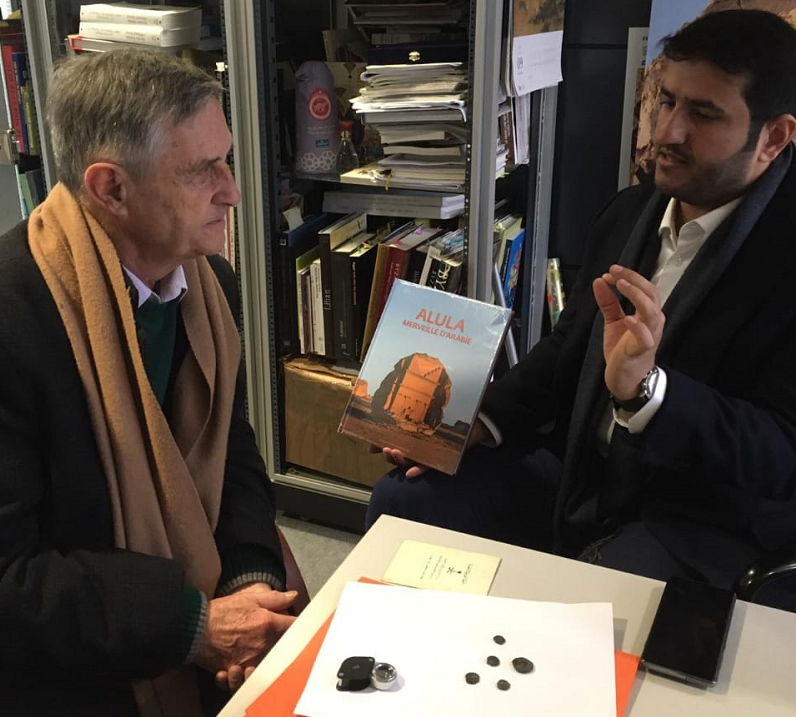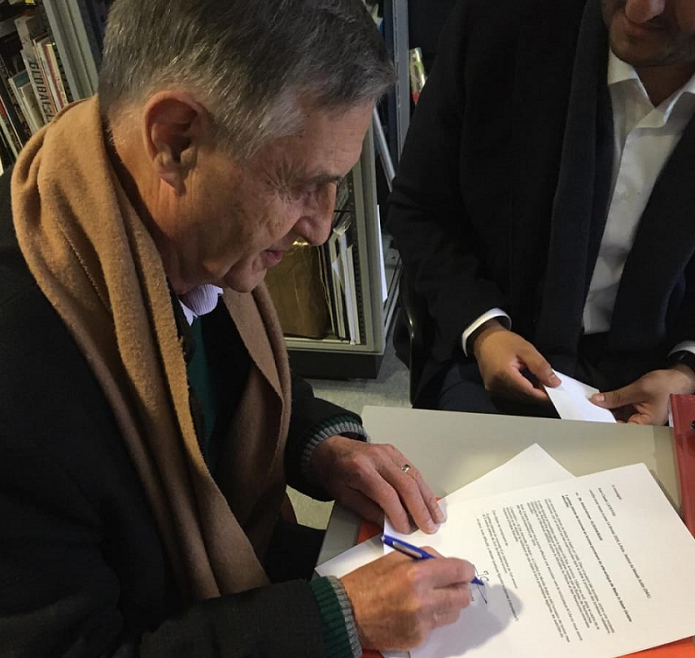



RIYADH/PARIS
The Royal Commission for AlUla received five bronze coins from antiquity last Friday, repatriated by Jean-Claude Lefevre, a French geological engineer who was given the coins by a young child in AlUla in 1966.
Lefèvre was inspired to return the items after visiting the AlUla – Wonder of Arabia exhibition at the Institut du monde arabe (IMA) in Paris.
Lefèvre met Dr. Abdulrahman Alsuhaibaini, the RCU’s Acting Museum and Exhibitions Director at the IMA and handed over the coins on 14 February. The coins will now be studied by RCU archaeologists to determine their origin and to better understand the ancient commercial crossroads at Hegra.
Dr. Alsuhaibaini said, “We are very grateful to M. Lefèvre for his contribution to the protection and preservation of our heritage. It’s wonderful to know that the IMA exhibition – where we launched our cultural manifesto last October – has inspired such positive behavior and a growing recognition of the Royal Commission’s commitment to preserving and protecting heritage. The coins will now be cleaned and conserved before they can be read and studied.”
Lefèvre was on a mission with the Saudi Ministry of Petroleum and Mineral Resources when he visited AlUla in 1966. Today, laws exist to protect and preserve cultural and heritage assets in Saudi Arabia, and removal of artefacts is forbidden by residents or visitors.
Hegra became Saudi Arabia’s first UNESCO World Heritage Site in 2008. The Royal Commission for AlUla was created by royal decree in 2017 to protect AlUla’s heritage and work with the AlUla community to develop the area as the world’s largest open living museum.
The Nabataeans, who built scores of iconic monumental tombs at Hegra, as well as a city and secular sites, controlled the area from at least the first century BCE until 106CE, when Roman troops serving the Emperor Trajan conquered them.
The Nabataeans at Hegra controlled the Incense Route, the trade trail used to move frankincense and other aromatics from South Arabia to the Mediterranean.
Before them, the trade was controlled by another AlUla civilisation, the kingdom of Dadan and Lihyan.
Archaeological excavations at Hegra have discovered much evidence of Nabataean daily life and rituals since regular excavations by the Saudi-French Mission began in 2008. The excavations have also demonstrated that the Romans built an outpost at Hegra – the most southerly Roman settlement yet known.
“Most of the finds are pieces of pottery and sandstone sculptures. Even the smallest find can yield valuable information that sheds new light on ancient life,” said Dr. Alsuhaibaini. “Since these coins have been removed from their original context at Hegra their scientific value is less, but once cleaned up they may yield important information about the Nabateans or the Romans.”
Saad AlMatrafi, RCU Spokesperson, denied the recent rumors about the discovery of gold in AlUla - "the video that has been circulating on social media is an old video that misrepresents the finding of small fragmented Lihyanite pottery statues in Um Al Daraj, AlUla.”
“There is no gold in AlUla” AlMatrafi added.
The AlUla – Wonders of Arabia exhibit continues to display many of AlUla’s treasures at the Institut du Monde Arabe in Paris until 7 March.